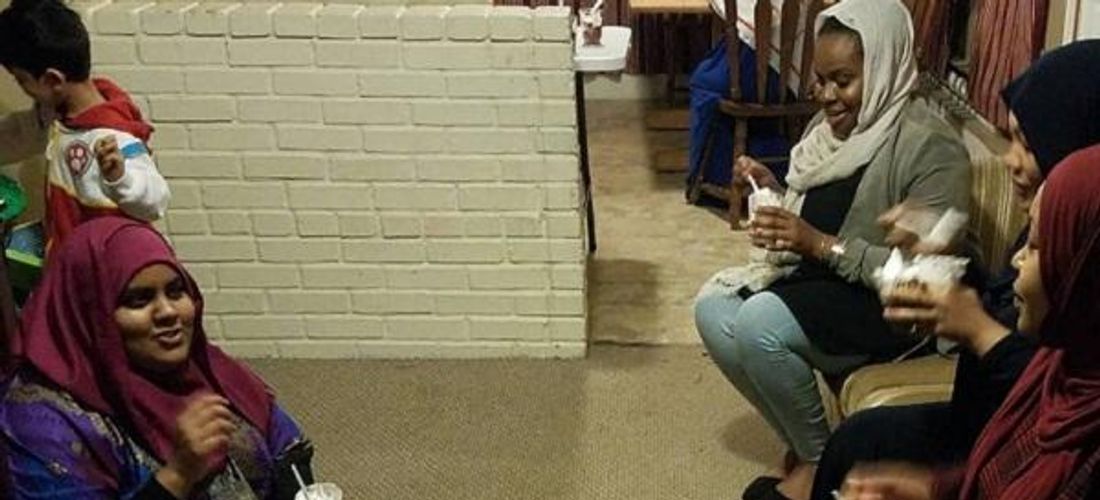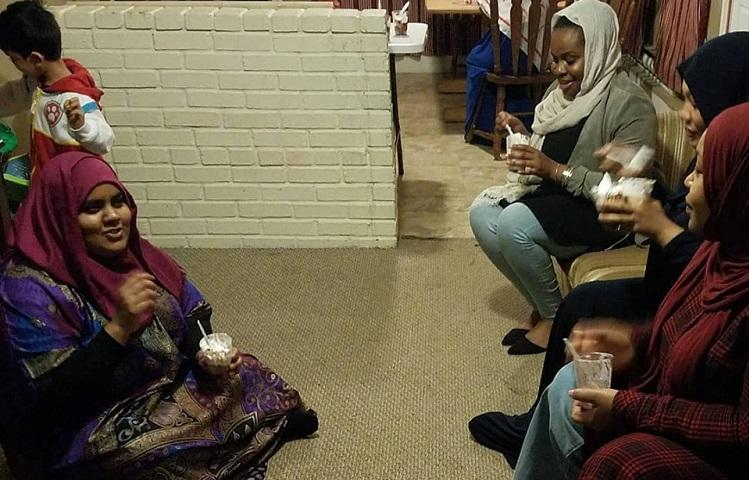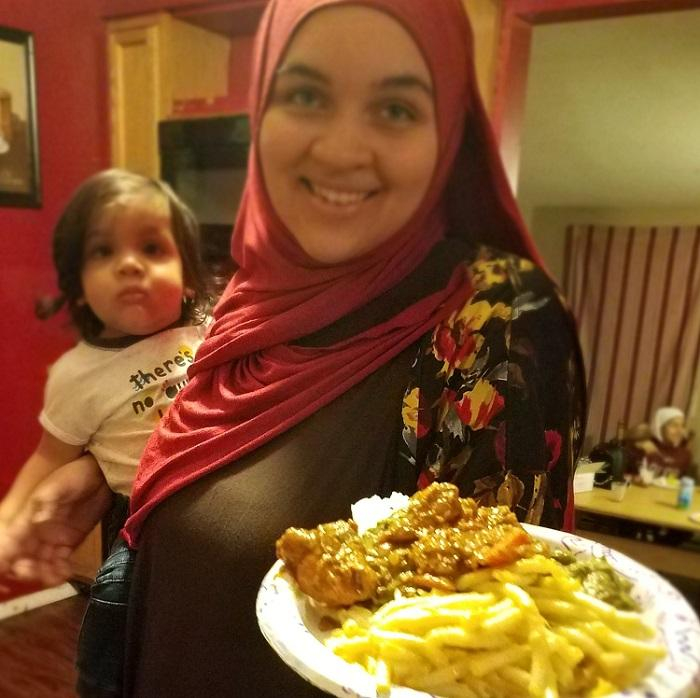Reflections on a Black Iftar - A One-Night Sanctuary from Hate & Microaggressions
Faith
|
May 31, 2019
|
4 MIN READ

By Layla Abdullah-Poulos
The entire family was excited and pitched in to get the house ready for iftar guests. My youngest son rolled up his sleeves and cleaned the entire kitchen beyond recognition. It took me a moment to realize I was home because, with a large family, a spotless eating environment is a thing of the imagination.
My oldest son pulled out paint and rollers and finally painted the repaired wall that remained a white, spackled eyesore for almost a year. Even the most complacent of the Poulos pack grabbed a broom and rag. Papa Bear (my husband) made sure each cub helped get things ready. This iftar was important to him because it was so critical for my spiritual well being.

In our almost 28 years of marriage, he has seen me become increasingly reclusive from Muslim public events, especially masjid iftars. I went from happily going to break the Ramadan fasts with my fellow worshippers of Allah to withdrawing to my home as a matter of pure emotional survival. I reached a point where I encountered levels of racial bias and downright anti-Blackness and often had to struggle with consequential emotional harm when attending these iftars and events.
I have been stared at, asked insulting questions about my Blackness and asked to prove the validity of my Muslimness. I have had people refuse to pray next to me, take a plate from my hand and call me a n****r in Allah’s house. It was all too much.
It got to a point where every approaching Ramadan, my anxiety ratcheted up at the thought that I would enter spaces with people whom I should ideally feel are the safest, but knew I wasn’t. It only got worse when walking into the building, dreading the inevitable. Like the tides at the beach near my home, the Ramadan microaggressions flooded in from different directions, covering me with social anxiety and drowning any spiritual significance of the holy time.
I am not being hyperbolic. Some environments are that toxic - choking a person with more than irritation, and leaving becomes a matter of survival.
To combat the increasing anxiety about Ramadan that corrupted my love for the blessed month, I made the tough decision to avoid most communal iftars. Consequently, I am left home alone most nights as my family leaves for the masjid. It is always bittersweet. I get to break my fast and eat unharassed in secure solitude, but there are moments of loneliness and bitterness that I have to pay the price for other people’s unIslamic behavior.
I have to miss seeing people who I rarely get to see during the year and enjoy the month with them and my family. But, it is a tradeoff I’ve had to make. I accepted it, but I am blessed with friends who do not.
Every year, we arrange to have iftars away from the masjid. Often it is only for a night or two, but it is a way to come together in worship and fellowship and avoid the microaggressions and bias that plague many Muslim spaces. The gatherings are small and mainly Black Muslims, but also include Latinx, multiracial and Trinidadian Muslims who do not identify as Black.
The majority of us converted to Islam with children born into the faith, so it is quite a mixture of cultural experiences. Despite our diverse backgrounds, there is no alienation or exhibitions of superiority. We treat each other with respect and dignity - laughing ourselves silly while we do.
Tensions are relatively low compared to iftars at the masjid, and mutual spiritual upliftment gives everyone a high (the good kind) and has us floating to our cars. It is a type of euphoria that many of us ardently desire but rarely get unless we create an environment, a sanctuary, to do so. Thus, private and public functions that afford people a break from corrosive social interactions are critical.
In Support of Black Iftars

On a larger scale, the hosting of Black Iftars across the country serve as a temporary third space refuge for Muslims battle weary from going into masjids that may not be so welcoming and are ripe with emotional trauma. For example, many Black Muslims have shared experiences of feeling unwelcome in even Black-majority masajid when they are new to the faith. So, levels of intracultural mistreatment continue in Muslim spaces and until there is a significant change, small and large-scale Black Muslim events will continue to be provisional harbors during Ramadan.
Black Muslims have been doing this for years. It is only now that organizers are being plain and public about the need for such spaces. Their straightforwardness sheds a light on disturbing cultural venom seeping through Muslim communities, poisoning opportunities for true fellowship. This makes many who are comfortable in the illusion of “brotherhood” distressed, causing them to lash out at organizers and supporters.
As unfortunate as that may be, detractors of anyone trying to coalesce in the worship of Allah need to get over themselves and spend some of that time and energy purging xenophobia, racism, anti-Blackness, sexism, ableism and all of the terrible discriminatory ideologies destroying our communities.
In Ṣaḥīḥ al-Bukhārī, hadith 5665 and Ṣaḥīḥ Muslim, hadith 2586, the Prophet Muhammad (saw) is reported to have said:
The parable of the believers in their affection, mercy, and compassion for each other is that of a body. When any limb aches, the whole body reacts with sleeplessness and fever.
Instead of being angry at one’s fellow believers who seek to escape the pain heaped on them, Muslims would benefit more by thinking about ways to make the body of Allah’s servants better by getting rid of the diseases causing limbs to ache. It’s not a matter of playing the victim or encouraging separation but a chance for some Muslims, who often are denied any place to go and be, a chance to breathe.
Subscribe to be the first to know about new product releases, styling ideas and more.
What products are you interested in?

